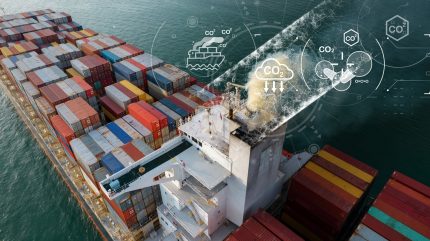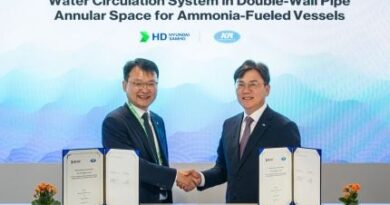ClassNK introduces fleet cost simulation service decarbonisation

Japanese ship classification society ClassNK has introduced a new service named ClassNK Fleet Cost Simulation, as part of its initiative to assist the maritime sector in transitioning to decarbonised fuels.
This service aims to provide clients with cost estimations related to greenhouse gas (GHG) emission reduction regulations, including the International Maritime Organization’s (IMO) mid-term measures, the EU Emissions Trading System (EU-ETS), and FuelEU Maritime.
It is intended to streamline the workload associated with cost estimation and documentation, allowing clients to access reliable cost data for their business planning needs.
The service features the ClassNK Fleet Cost Calculator, a tool designed to project future cost variations resulting from fuel conversion.
Available in Excel format, the ClassNK Fleet Cost Calculator addresses three key environmental regulations: IMO GHG Fuel Intensity (GFI), EU-ETS, and FuelEU Maritime.
The tool is designed for flexibility, enabling users to customise various assumptions, including ship prices, fuel prices, vessel replacement timing, fuel efficiency improvements, and GHG emission factors.
The simulation service also includes a Cost Estimation Report that presents a comprehensive overview of the total cost outlook for an entire fleet, utilising graphs and tables to convey the information effectively.
The Cost Estimation Report, provided in PowerPoint format, summarises cost projections up to 2050 based on actual fuel consumption data.
This report incorporates various cost factors impacting business operations, such as shipbuilding, fuel, and regulatory compliance, and is formatted for immediate use in internal presentations and management reporting.
An advanced version of the report is also available upon request, which simulates and analyses the timing and effects of fuel conversion for cost optimisation.
ClassNK has committed to further supporting clients in their decarbonisation efforts through ongoing enhancements to the ClassNK Transition Support Service.
Updates to the service are planned to be implemented before the IMO GFI (Greenhouse Gas Fuel Intensity), coming into effect on 31 December 2027.
In April this year, ClassNK granted approval in principle (AiP) for a retrofitted Kamsarmax bulk carrier’s design, transitioning from conventional fuel to a methanol dual-fuel configuration.



